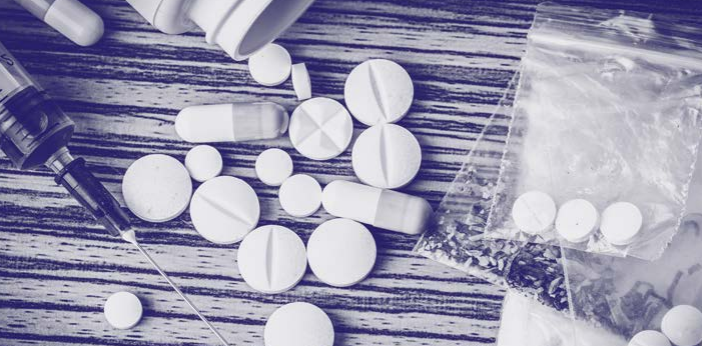The Shipowners Club issued a revised edition of its ‘Drugs and Alcohol at Sea’ booklet, to assist with the prevention of related incidents as well as encouraging healthy lifestyle choices and the positive wellbeing of seafarers. The guide includes signs to assist operators in identifying drug and alcohol related issues onboard, legal implications, as well as loss prevention advice.
The World Drug Report 2017 identified that while there has been a slight decline in the use of some drugs such as cocaine, there has been an increase in the consumption of cannabis and opioids (pain killers) and that the overall use of drugs worldwide has remained at the same levels as a result.
Signs
The guide advises operators that the only way of establishing with any degree of certainty whether there is a drugs problem onboard a vessel is to embark on a drug testing programme. However there are a number of other indicators, which might help identify those with a drug problem:
- Sudden unexplained mood changes
- Unusual irritability and aggression
- Tendency to become confused
- Abnormal changes in concentration
- Poor job performance
- Poor timekeeping
- Loss of short term memory
- Loss of interest in job
- Deterioration of relationships with fellow crew
- Dishonesty and theft from the vessel or fellow crew
- Unexplained changes in financial circumstances
Legal implications
Whether a company has a zero tolerance policy or not, the possession of some drugs is illegal, exposing the user to the risk of criminal charges as well as causing harm to their psychological and physical health. The Club underlines the following points:
- If you knowingly permit the possession, trafficking or use of illegal substances to take place on your ship, you could be committing a criminal offence.
- If you knowingly allow an employee under the influence of drugs to continue working you may be prosecuted, especially if their behaviour places others at risk.
- If you knowingly allow an employee under the influence of drugs to continue working and that employee causes an accident, you may be liable for any damage or injury which results.
- The discovery of illegal drugs onboard a vessel by customs officers can result in the vessel being detained and the owners or operators being fined. In extreme cases the vessel itself may be confiscated.
- Depending on the country in which drugs are found onboard, the penalties for individuals found with illegal substances can vary from fines to imprisonment or even the death penalty.
- The measures taken by ship owners to prevent the use and presence of drugs on board vessels should not be limited to employees but also extend to third parties. Any contractors or visitors should be made aware that they must also comply with the policy during their time on board.
- The development of a drug and alcohol policy may require the expertise of legal, occupational health and human resource professionals. Drug users are more likely to be tempted into becoming involved in smuggling operations as a means of financing their expensive habit. Smuggling activities clearly increase the risk of a ship owner or operator being fined or having their vessel confiscated.
Dealing with or preventing the use of drugs onboard
To mitigate against the use of drugs onboard, operators should:
- Devise and implement a written policy on drugs.
- Implement a prevention and education programme to provide the seafarer with clear factual information about the nature of drugs, the short and long term effects of their use and the implications for the seafarer and their personal safety on board ship.
- Introduce a drugs and alcohol clause to your seafarer’s contract of employment.
- Implement a drug screening /testing programme.
- Reiterate your zero tolerance on drug use, if applicable.
- Facilitate social interaction on board by means of interactive group recreational facilities.
- Promote a positive attitude and interest towards personal health and fitness by providing a varied, healthy and interesting diet and so far as practicable, fitness equipment for physical health.
Explore more herebelow:


































































